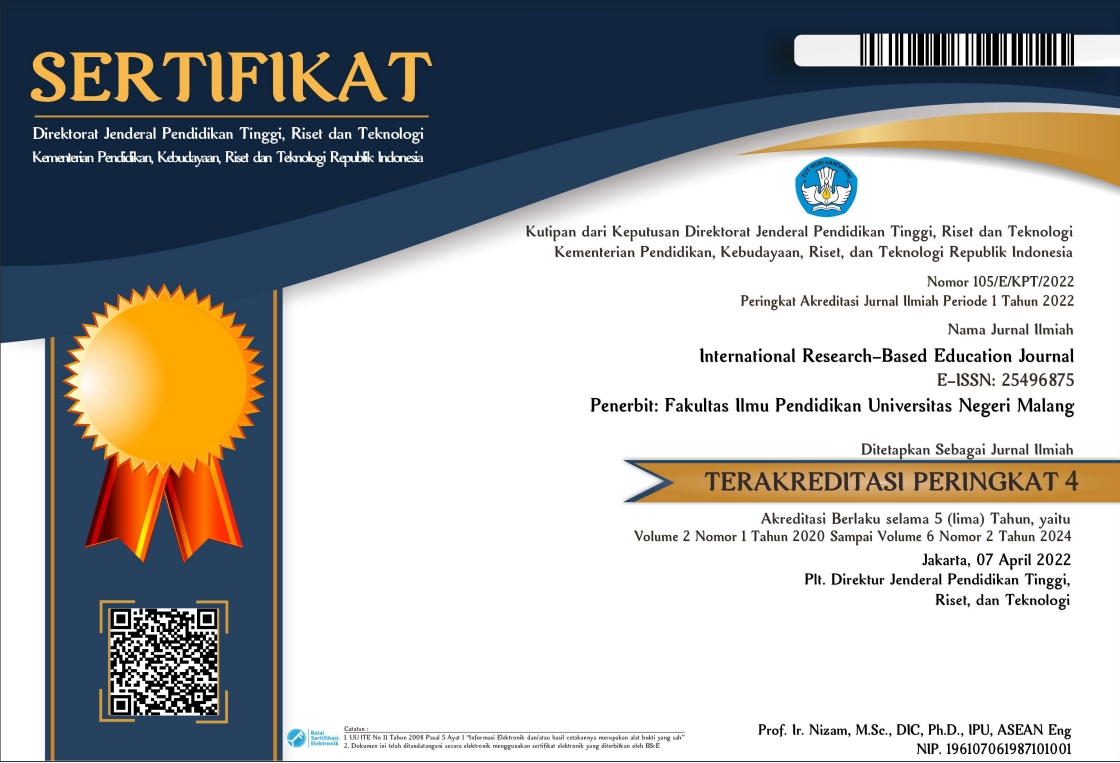Exponential Model For Projecting The Population Of Percentage Of Women Ever Married Under The Age (Less Than 17 Years) Of Alor District In 2030
Abstract
Every marriage is not only based on biological needs between men and women who are recognized as legitimate, but as executor of the natural process of human life. In addition, marriage is also based on religion, meaning that religious aspects become the main basis of domestic life by carrying out faith and devotion to God. Marriage is a gift from God that needs to be respected and grateful for and presents an atmosphere of peace, order and control in a good and responsible manner. The marriage relationship should be celebrated in sincere love. The impact that will be felt when women marry under age is the chaos of the household to be fostered, there is still dependence, most of which expect a family, the level of domestic violence continues to increase. In 2030, the population of underage married women (age less than 17 years) in Alor Regency is based on the exponential model formula, when t=15, then y=33.10 All components need to take strategic steps to reduce the population of underage (less than 17 years old) married women in Alor district. This, based on the calculation of the exponential model has increased by 33.10%. This will have cross-cutting impacts, namely population explosion, poverty, disruption of economic stability, low levels of education, security stability in terms of domestic violence, infidelity cases and others that have a negative impact.
Keywords
Full Text:
PDFReferences
Anggraeni, R. (2020). Enhancing the Revisit Intention of Nature-Based Tourism in Indonesia : The Management and Business Research Quarterly Enhancing the Revisit Intention of Nature-Based Tourism in Indonesia : The Role of Memorable Tourism Experience and Satisfaction. (January). https://doi.org/10.32038/mbrq.2019.11.02
Castillo-Chavez, C. dan Capurro, A.F., 2000. A Model for Tuberculosis with Exogenous Reinfection, Theoretical Population Biology, 57, hal 235-247
Davies, A. And G. Quinlivan. 2006. A Panel Data Analysis of the Impact of Trade on Human Development, Journal of Socioeconomics, New York
Ginting, C.K. (2008) "Analysis of Human Development in Indonesia". Master's Thesis, Graduate School, University of North Sumatra, Medan.
Harianto, W. (2017). Journal of the Application of Differential Equation Continuous Population Models in Kediri Population Growth. Thesis Article. [On line]. Available
Varberg, et al.(2008) Calculus Ninth Edition, Volume 1. Jakarta: Erlangga
DOI: http://dx.doi.org/10.17977/um043v5i1p33-45
Refbacks
- There are currently no refbacks.

This work is licensed under a Creative Commons Attribution-NonCommercial-ShareAlike 4.0 International License.










1.png)


